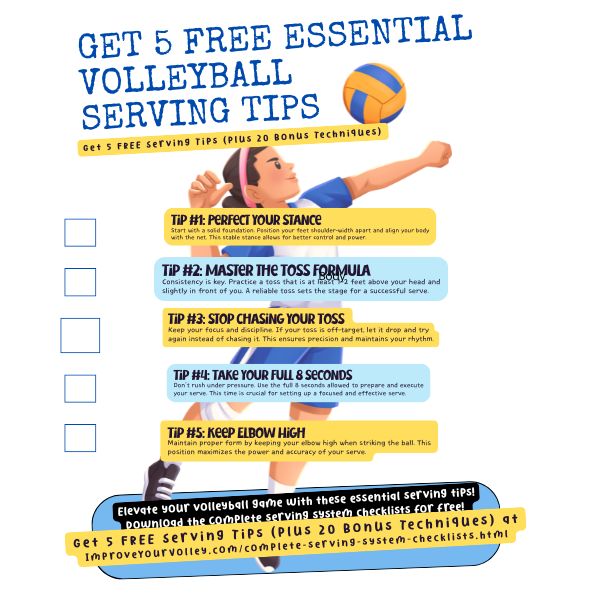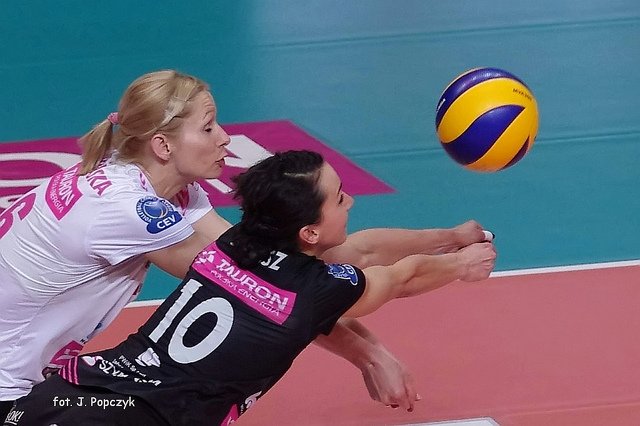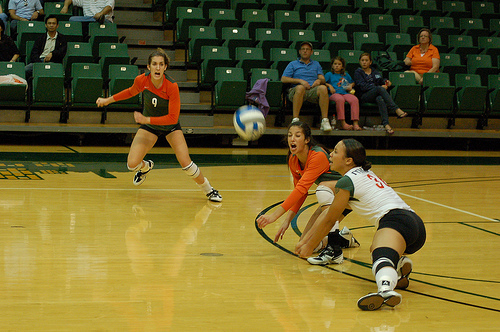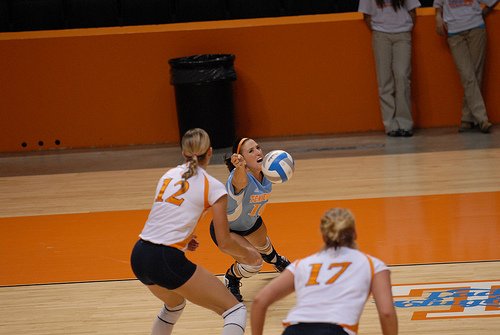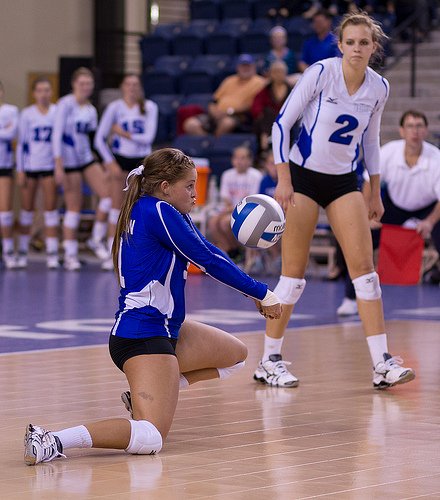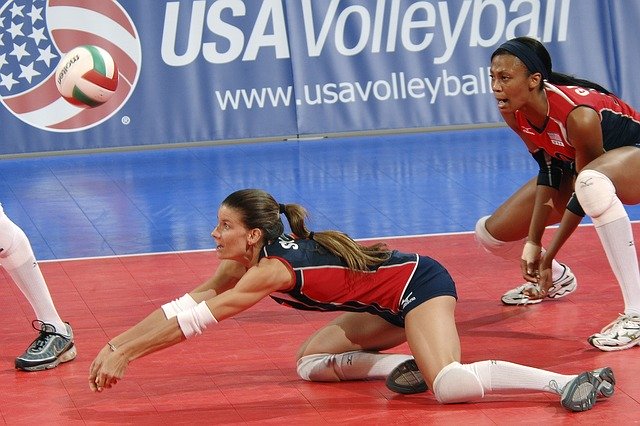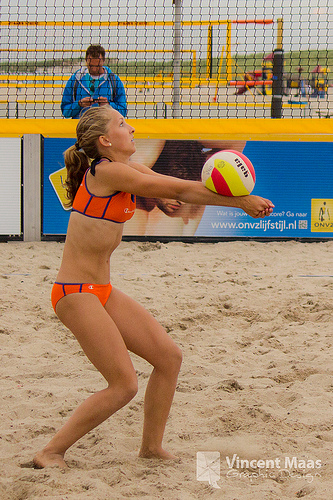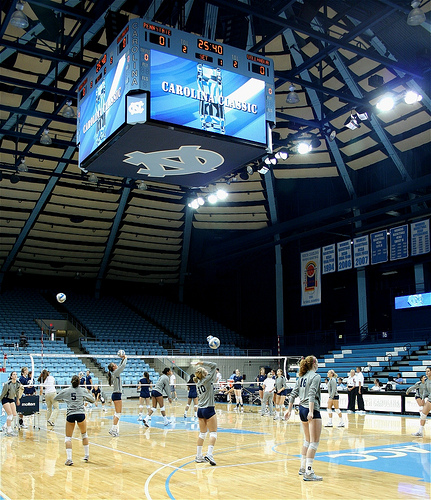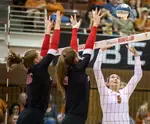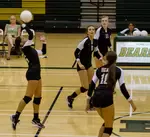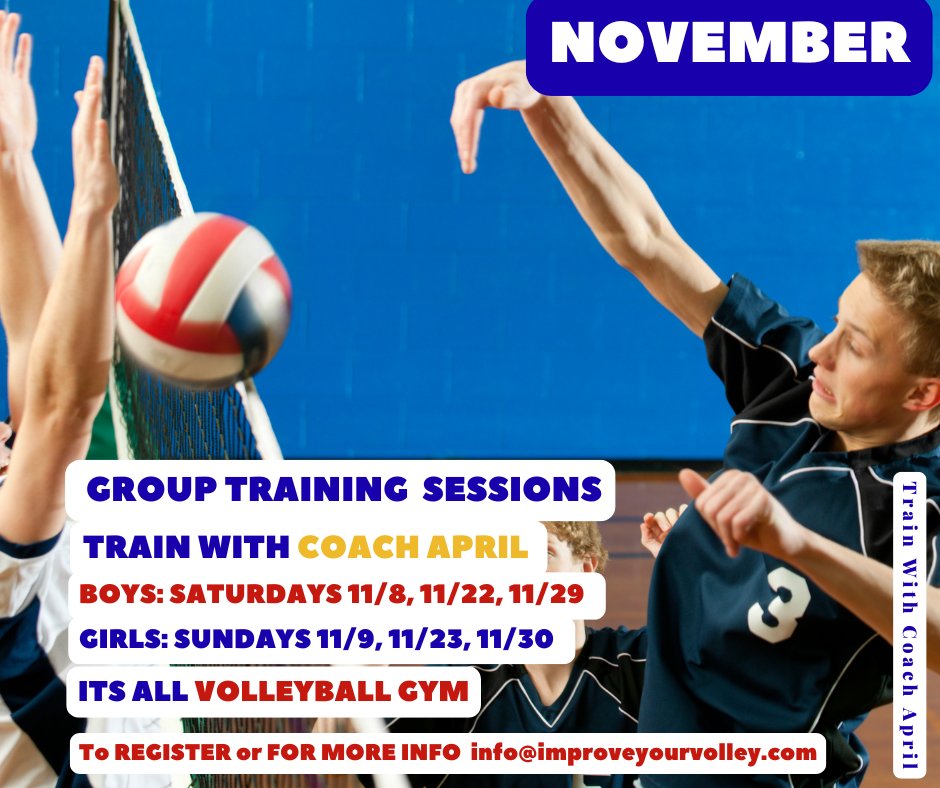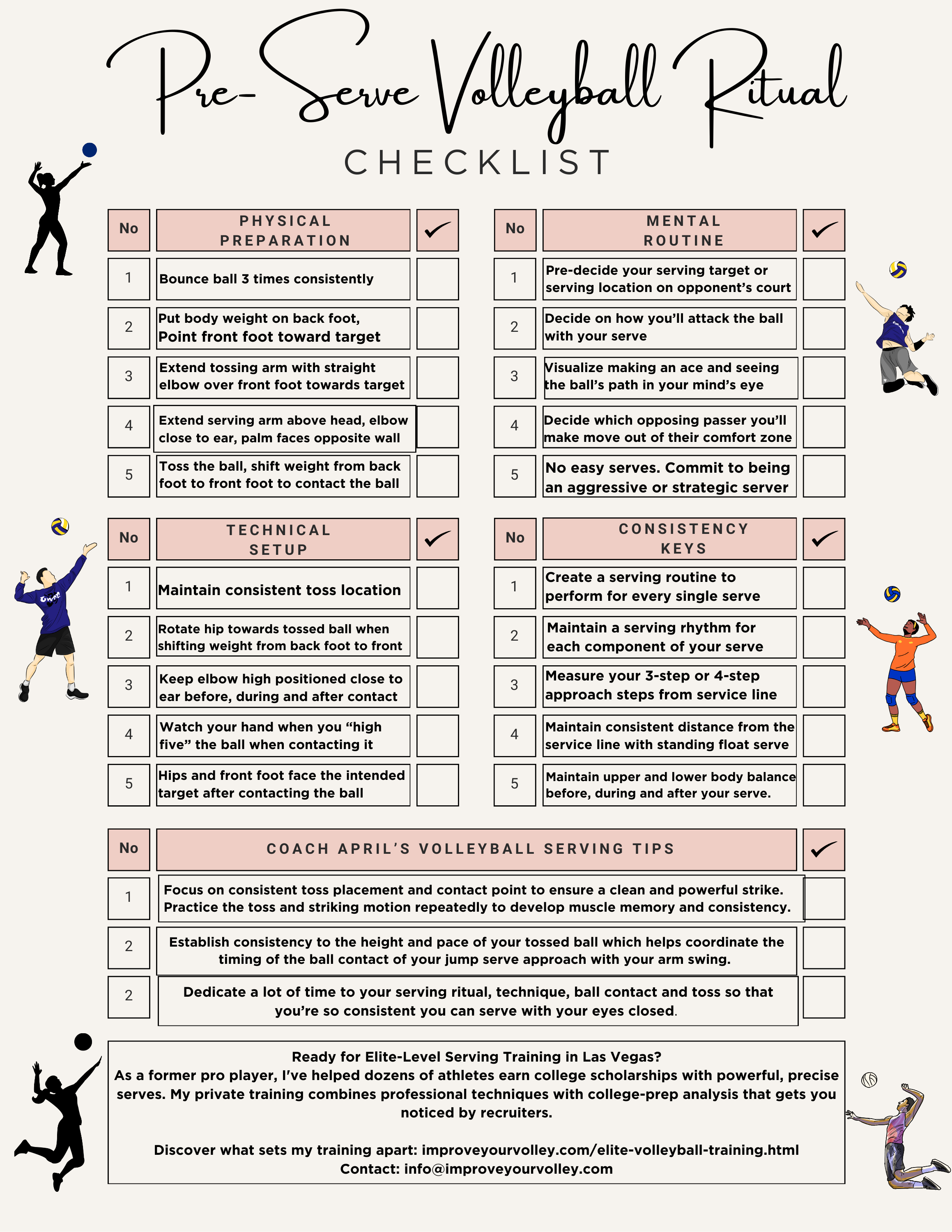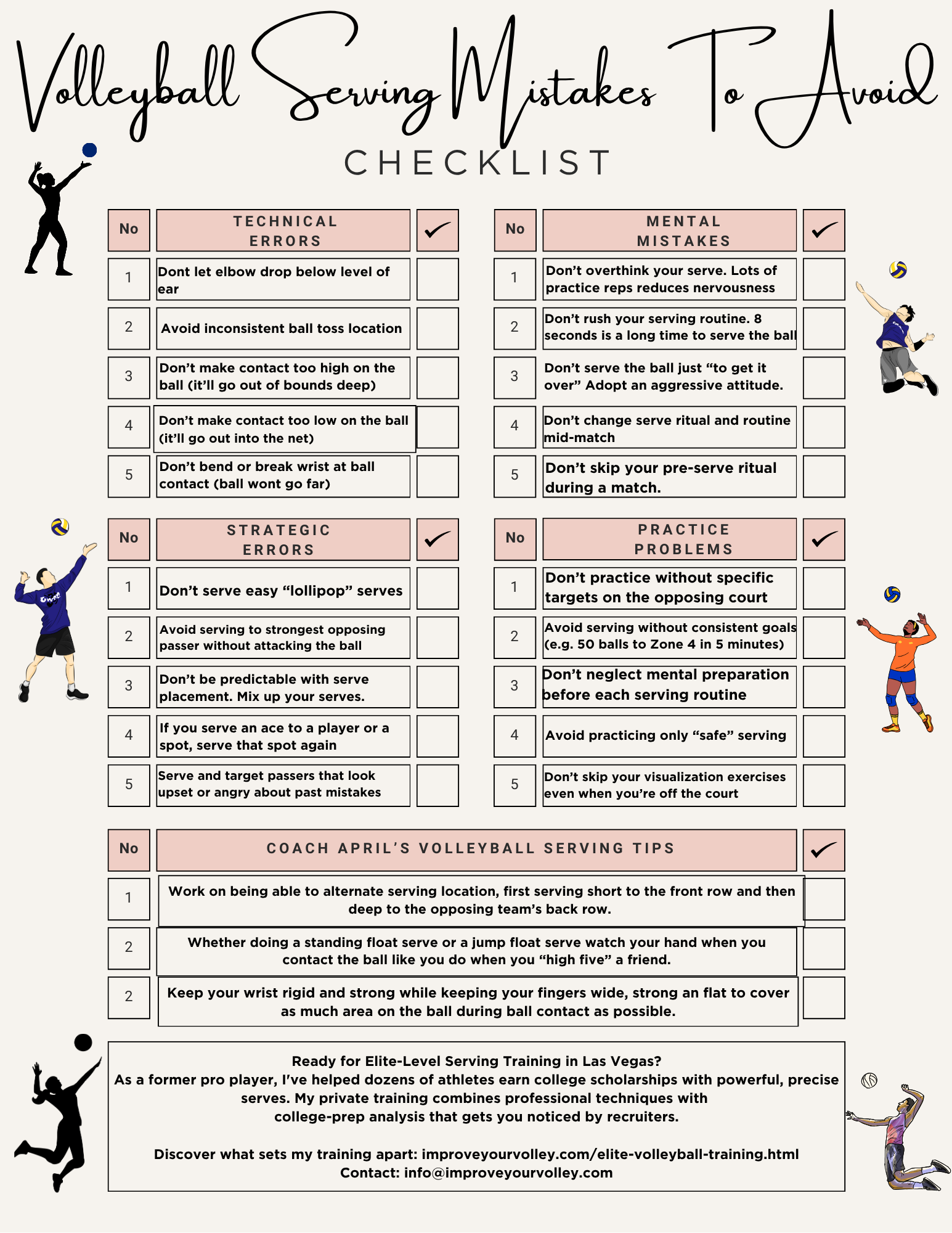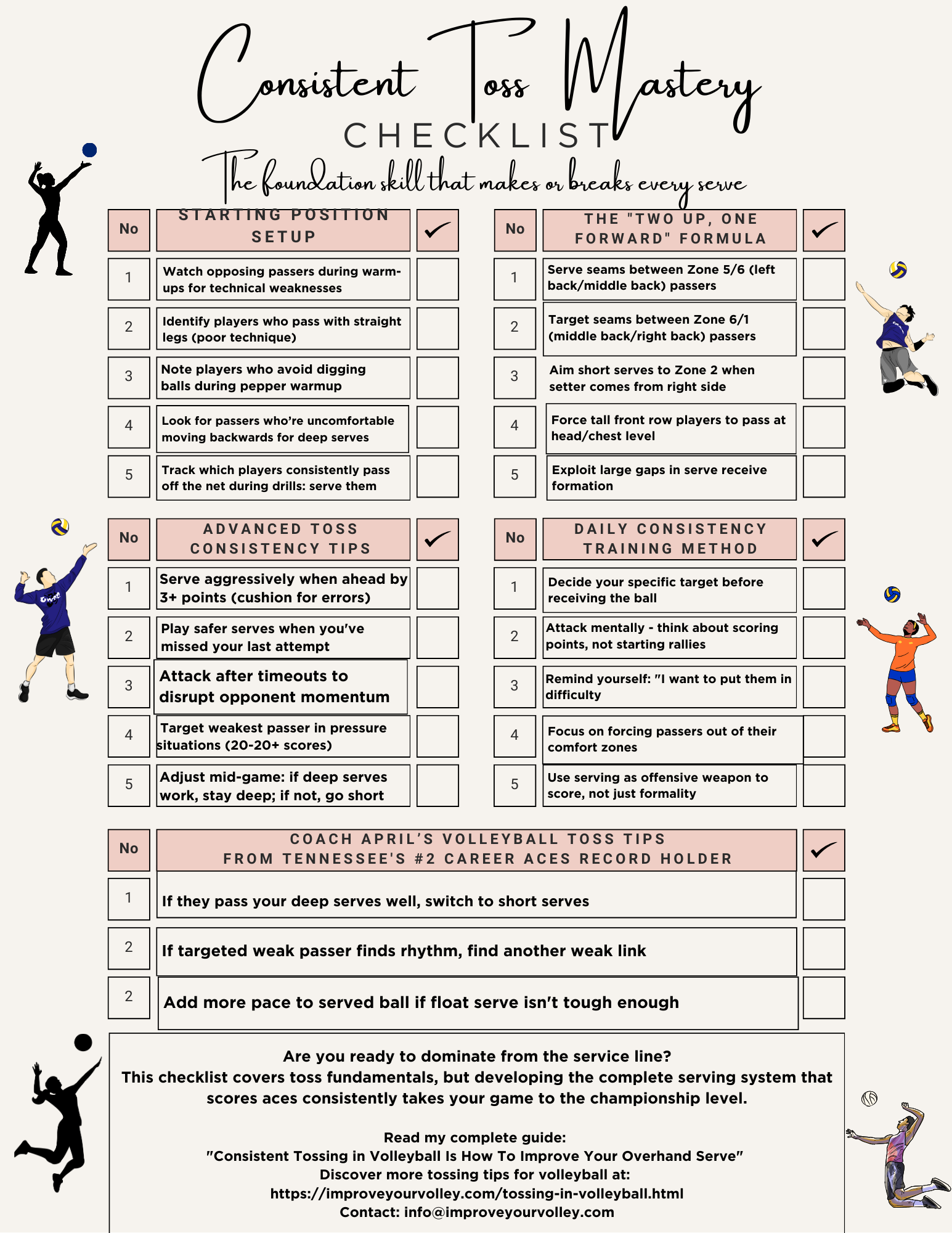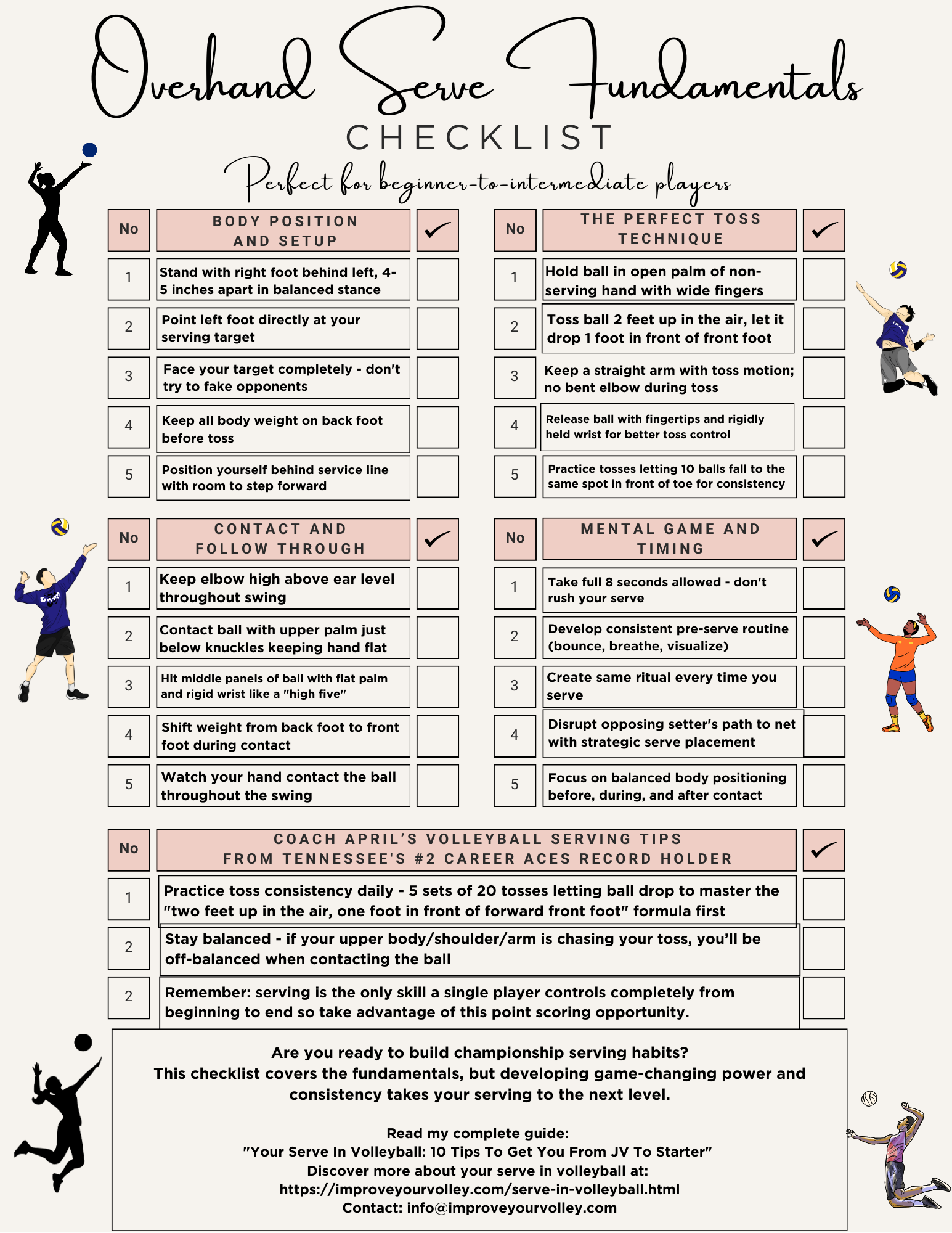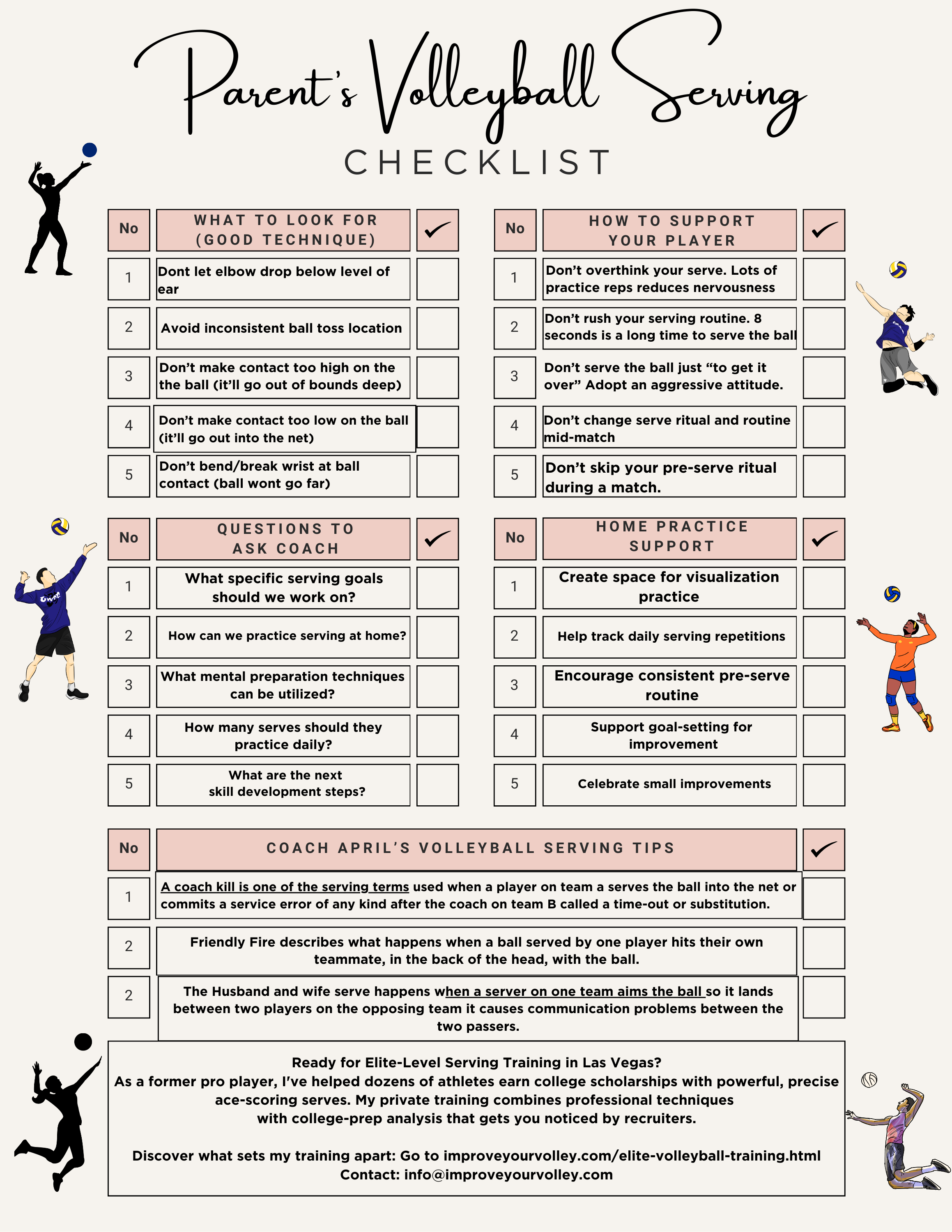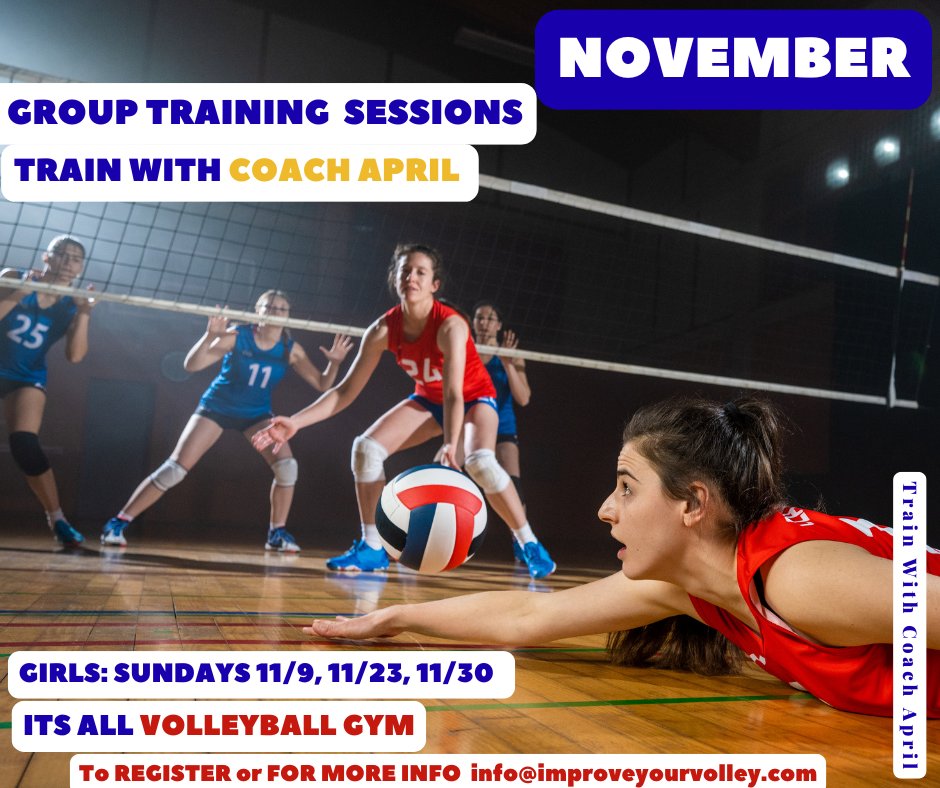- Improve Your Volleyball with Coach April
- Words Used in Volleyball
- Volleyball Terms To Know
A List of Volleyball Terms To Know For Liberos and Backrow Players
Here's a list of volleyball terms to know on digging and defensive terminology for liberos and backcourt players who need to know about backrow defensive terms.
This list of volleyball terms to know for defensive players is an extensive checklist of funny terms and words borrowed from everyday language for normal people and turned into definitions for defensive playing actions on the court that mean something completely different to players, coaches and fans.
Remember the goal of the team on defense is to keep the ball off their floor so, the players are set up to strategically cover areas at the net and areas in the back court to keep the opposing team from attacking to those areas.
As you learn more about the game, you'll learn more advanced defensive strategies like
how more advanced defensive options work, like playing team rotational defense.
This is a basic explanation of volleyball defense.
Discover specific volleyball terminology collegiate and professional athletes use regularly for defensive actions performed in competition.
A List of Volleyball Terms To Know With Words And Jargon For Liberos and Backrow Players:
What's a libero?
A libero in volleyball can be compared to a pinch hitter in baseball.
The libero is a defensive specialist given much court space to cover to dig up balls in the backrow.
As an expert in serving, passing and backrow defense, the role calls for them to be the one back row player to enter games for a front row player, when that player has to go serve in the backrow without having to be "substituted" in.
The libero's jersey is always a different color shirt color than her teammates to make it easier for the ref and officials to differentiate her from her teammates since she only plays in the back row.
A List of Volleyball Terms To Know With Words And Jargon For Liberos and Backrow Players:
What's a pancake?
The "pancake" is volleyball terminology used in defense to describe what a player does as a last possible effort to keep the ball in play by keeping it from contacting the floor.
If the ball falls below the level of where she would normally form her platform, she can still drop to the floor and place her hand, with her palm down on that very spot on the ground so the ball contacts her hand and not the floor and bounces back up into the air.
This can be an effective method if you have completely extended yourself to get to a ball and the only option you have left is to put your hand out, on the floor, so the ball hits it, instead of the floor.
With a very flat hand well-placed under the ball on the floor, the ball will bounce straight up from your hand, as if it contacted the floor.
A List of Volleyball Terms To Know For Liberos and Backrow Players:
What's a chicken wing?
In beach volleyball defense, this move is used by a player who uses a bent elbow to defend a hard hit spike that's aimed right at her head and shoulder area.
Usually she will chicken wing a ball because she doesn't have time to get both her arms out to form a platform.
As a quick deflective movement, a player will bend their elbow, so the arm looks like its in the shape of a chicken wing, and dig a fast approaching ball that's usually headed towards the digger's face.
The chicken wing is a reactive movement and quite often is unplanned.
A List of Volleyball Terms To Know And Words And Jargon For Liberos and Backrow Players:
What is pepper?
Sure it's a spice!
But pepper in volleyball is a pre-game warm up practice drill used by teammates who partner up and perform all three basic volleyball defense and setting, passing and spiking skills in different combinations in order to do one or all of the following five things:
a. To improve ball control skills.
b. To improve serve receive volleyball technique.
c. To increase the amount of court area you cover.
d. To narrow your focus and concentration.
e. To quicken your reactions and reduce fear of the hard hit ball.
Some coaches use pepper as a conditioning drill or as a way for players to improve their reading ability and digging consistency and technique.
My List of Volleyball Terms To Know With Words And Jargon For Liberos and Backrow Players:
What's a roll?
A roll is an acrobatic defensive technique that players use to collapse safely to the floor after they've been forced to leave their feet to dig a ball.
This volleyball dig video became so popular it was trending on Twitter!
Texas Girls high school volleyball player Autumn Finney pulled off one of the greatest volleyball digging displays ever caught on tape.
Finney soars through the air and makes a fearlessly successful diving save.
This volleyball dig video became so popular it was trending on Twitter!
If your athlete struggles with consistent serve receive, gets subbed out, or is overlooked for playing time—this is the fix you’ve been looking for.

Struggling with passing consistency?
I help talented passers tired of getting pulled from games because of inconsistent serve receive skills BUILD passing confidence without expensive private lessons using the same 3-step system that's helped dozens of my athletes get recruited.
Download my eBook for $17.99 and start building the passing confidence that keeps you on the court—and gets you seen by college coaches.
From Lady Vol to Legend: Coach April Produces Powerful Passionate Players...is that you?
What Are You Looking For?
Click to Download Your Pre Serving Ritual Mastery Checklist pdf:
🎯Volleyball Pre Serving Ritual Guide -
Players! Learn How To Transform Your Serve from Weak to Weapon
Click to Download Your Parent's Volleyball Serving Checklist pdf
🎯Parent's Volleyball Serving Checklist Guide
Parents! Help Your Player Develop Championship Serves (Even If You've Never Played)

Hi there!
Thanks for stopping by. Hope you learned something today that will help you reach your volleyball goals.
Be sure to subscribe to my email newsletter so you can learn more each week!
Stay strong! Stay motivated!
-Coach April

SUSCRIBE to my email newsletter below!
 Click to learn more about the weekly volleyball classes and clinics or email info@imrpoveyourvolley.com for information
Click to learn more about the weekly volleyball classes and clinics or email info@imrpoveyourvolley.com for informationCongratulations to my seven Boys-18s Vegas Volley club players who played in two state championship finals yesterday, the 3A and 5A State champinship finals at Sunrise Mountain High School.
TOURNAMENT CHAMPIONS!
A-1 Vegas Volley VBC
In It To Win It Tournament
May 2 - 4, 2025 Tournament
Gold Medalists
18s Premier Division
Vegas Volleyball's Unsung Heroes: Celebrating Moms with Peace Love Volleyball Shirts
Ready to energize your volleyball mom journey?
Subscribe to my 'Producing Powerful Passionate Peaceful Players' email list above on ImproveYourVolley.com.
You'll receive energy-boosting tips, exclusive insights from me, Coach April Chapple on maintaining momentum in volleyball.
Let's power up the Vegas volleyball scene together!
Recent Articles
-
3 Exercises To Improve Spike Skills By Hitting With A Faster Armswing
Jan 06, 26 01:13 AM
These 3 volleyball exercises to improve spike skills by hitting more balls in the court with a quick armswing and aggressive spike approach to beat blockers. -
Your Serve in Volleyball: 10 Tips To Get You From Bench to Starter
Jan 02, 26 03:41 PM
I hold Tennessee's #2 career aces record (244 aces). Last month I coached 7 players to state finals. These 10 serving tips separate legends from bench players. -
Overhand Jump Serve Volleyball Tips To Score Many More Points and Aces
Jan 02, 26 03:14 PM
My "Coach April Overhand Jump Serve Volleyball Tips" designed to help you increase your serving accuracy, power and the ability to serve more aces in volleyball.
